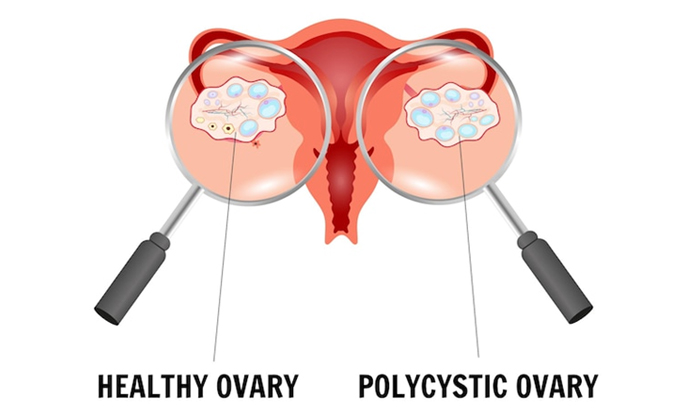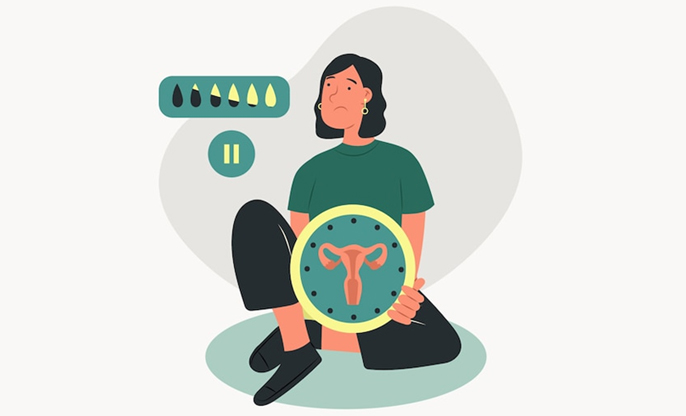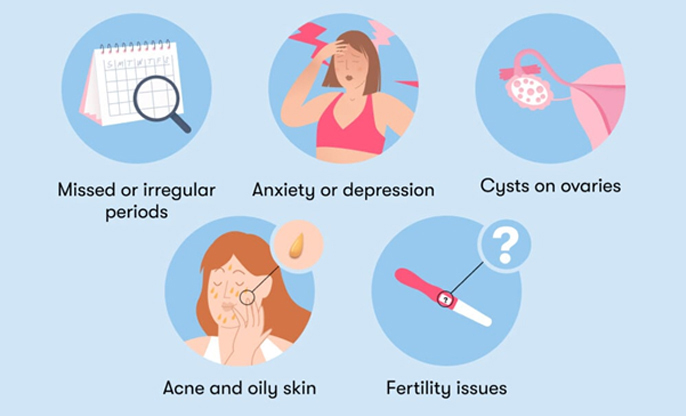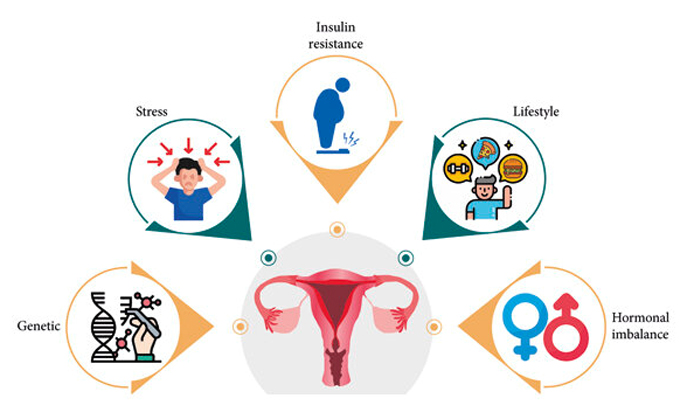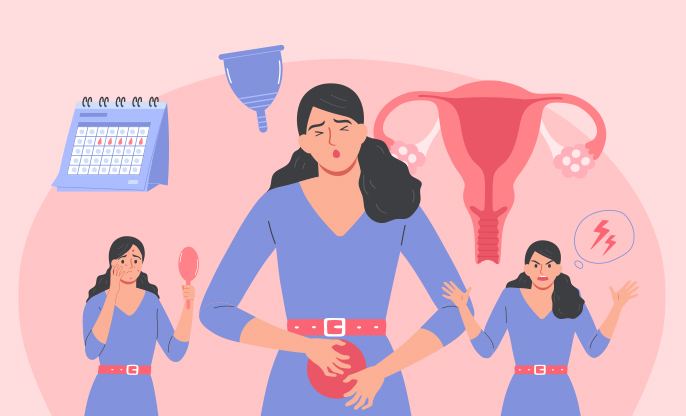
Living with Polycystic Ovary Syndrome is also about transforming our lives to enhance our health and well-being. Here’s how we can make lifestyle changes that truly matter in our journey with PCOS:
- Dietary Modifications
○ Choosing Low-Glycemic Foods: We focus
on foods that don’t spike our blood sugar. This means plenty of whole grains,
legumes, nuts, and lots of fruits and vegetables.
○ Balanced Eating: We make sure to
balance our meals with a good mix of carbohydrates, proteins, and healthy fats
to keep our insulin levels stable.
○ Eating on Schedule: Sticking to regular meal times helps us avoid those drastic blood sugar changes, which is crucial for managing insulin resistance, a common struggle for us.
- Regular Physical Activity
○ Staying Active: Regular exercise,
including both cardio and resistance training, helps us improve our insulin
sensitivity, lose weight, and lower our risk of heart disease. We aim for at
least 150 minutes of moderate activity per week.
○ Building Strength: We also include strength training because it helps our bodies better use glucose, which is essential for us.
- Weight Management
○ Reaching a Healthy Weight: Even
losing 5-10% of our body weight can make a huge difference in our symptoms,
from irregular periods to fertility challenges.
○ Long-Term Health Focus: We focus on making sustainable changes to our lifestyles, not just quick-fix diets.
- Stress Management
○ Finding Peace: We practice
mindfulness and meditation to cut down the stress that can make our PCOS
symptoms worse.
○ Prioritizing Sleep: Getting
enough rest is non-negotiable for us. Poor sleep patterns can mess with our
insulin resistance and throw our hormones even more out of balance.
- Avoiding Negative Lifestyle Factors
○ Cutting Out the Bad Stuff: We try to eat fewer processed foods and sugars, limit alcohol, and if smoking is in the picture, we work hard to quit. These changes are crucial for improving our PCOS symptoms and boosting our fertility.
- Regular Monitoring and Medical
Check-ups
○ Keeping Up with Check-ups: Regular
visits to our healthcare provider help us keep track of our symptoms and adjust
our lifestyle plans as needed.
○ Staying on Top of Tests: We keep a close eye on our blood glucose and cholesterol levels through routine tests recommended by our doctors.
Embracing these lifestyle changes helps us manage our PCOS not just effectively but with empowerment. Each step we take is tailored to fit our personal health needs and preferences, guided by professionals who understand our journey. This isn’t just about treating symptoms - it’s about leading a healthier, more fulfilling life.
